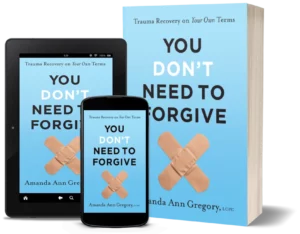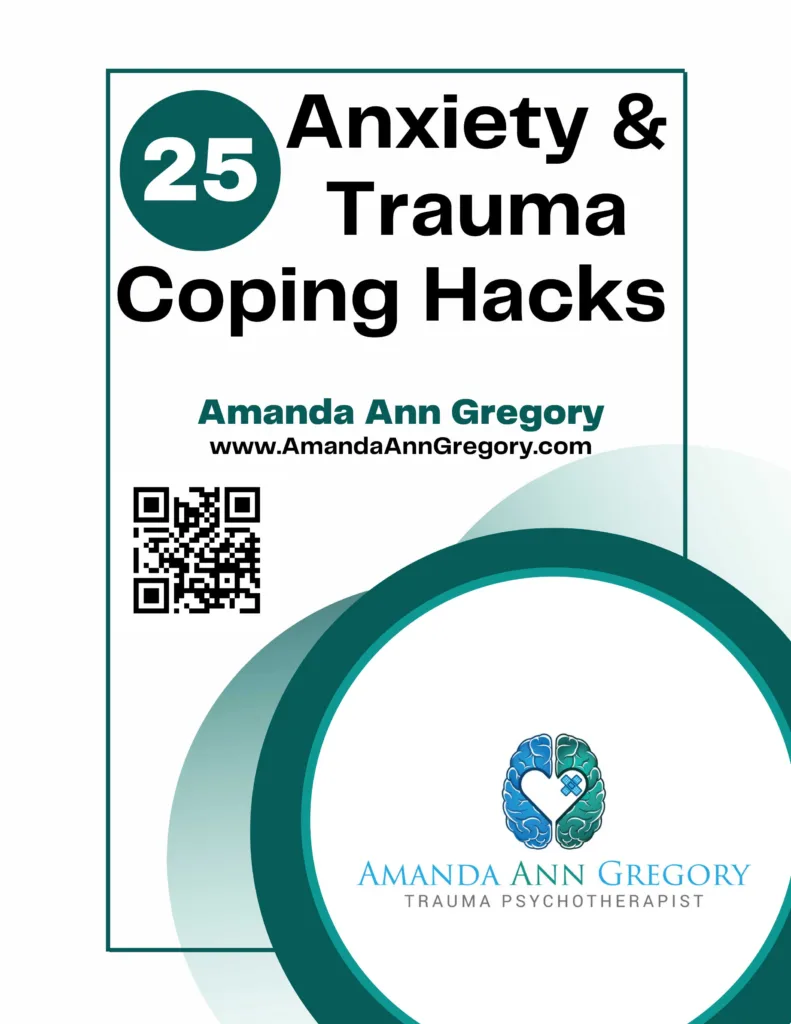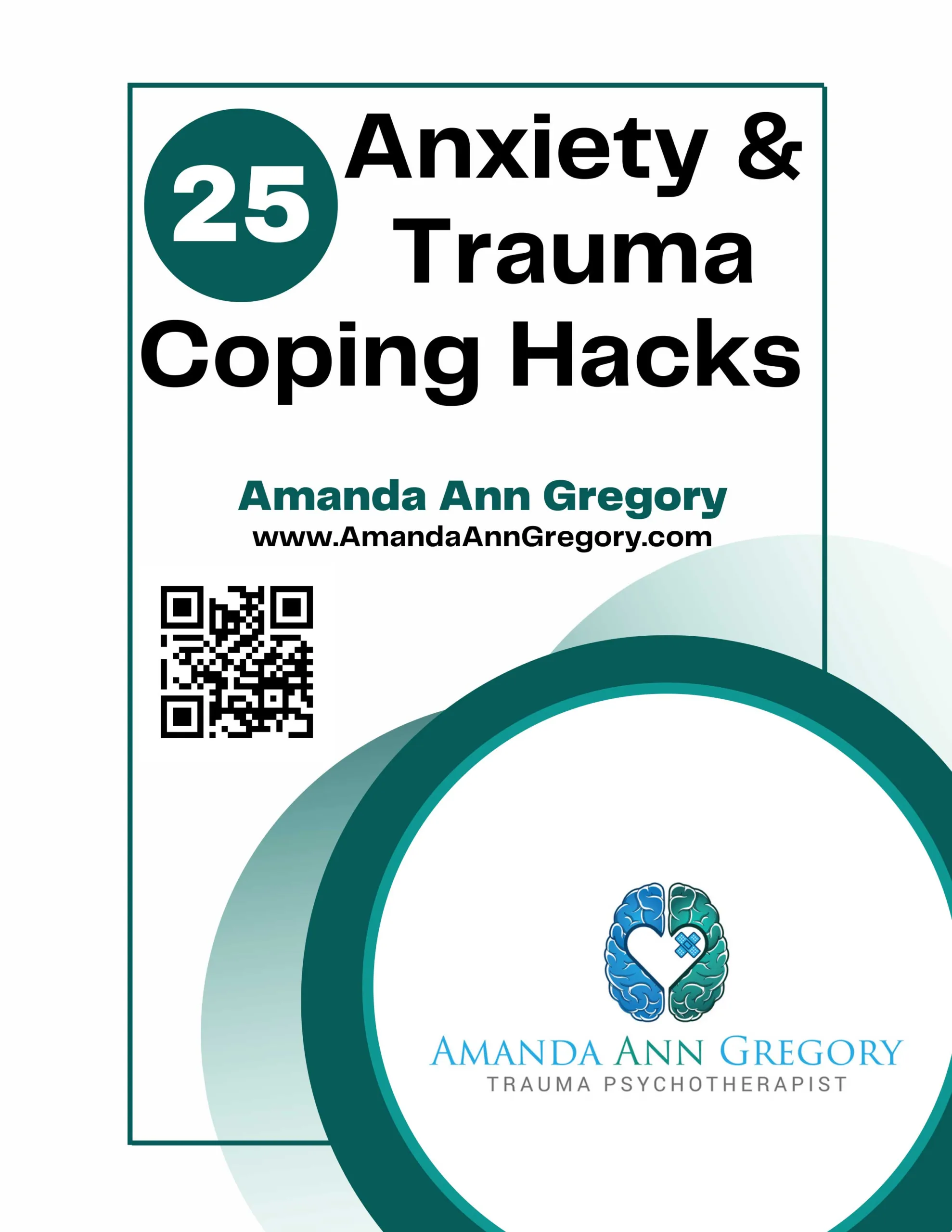It’s common for trauma therapy and chosen family estrangement to go hand-in-hand. Some trauma survivors begin therapy already estranged from family; others choose estrangement during or after treatment. Estrangement may be brief, longer term, or permanent. Regardless of duration, trauma therapists frequently work with survivors who choose estrangement so frequently that anti-estrangement advocates often claim therapy causes estrangement.
This allegation isn’t true as the goal of trauma therapy is to treat trauma, not to initiate family estrangement. Yet, trauma therapy also does not seek to end estrangements or prevent them from occurring. In fact, several aspects of trauma treatment naturally support survivors in making decisions, including family estrangement, that prioritize their safety and well-being.
Here are three common reasons trauma therapy may lead to, rather than discourage, family estrangement.
- Trauma Therapy Improves Survivors’ Ability to Identify Unsafe Relationships
Trauma survivors often feel unsafe, even when no immediate danger exists. One of the most vital aspects of trauma therapy is helping survivors to assess their safety in the present, recognize when safety is threatened, and respond in ways that promote their safety. When survivors progress in trauma therapy, they are more likely to be able to distinguish between safe and unsafe relationships.
Not all family relationships are safe. Some family members caused, enabled, or failed to protect survivors, which has caused significant harm, leading to trauma. Others continue to engage in harmful behaviors in the present. If these past and present harms have not been adequately addressed and repaired, then the relationship may not feel safe in the present and would be incompatible with trauma healing. Trauma therapy helps survivors identify unsafe relationships, which increases the likelihood that they will make decisions that promote their safety.
Case Study: Mark
Mark’s parents emotionally abused him in childhood and treated him as the family’s scapegoat. At 33, Mark began trauma therapy and discovered the extent of the abuse and how it continued into adulthood. Mark made attempts to establish safety in his relationships by inviting his parents to participate in family therapy (they refused), setting firmer boudianres (they broke them), and writing letters to communicate his needs (they ignored them). His parents wanted the relationship to remain unchanged. To protect his well-being, Mark chose estrangement, and his parents believed his therapy was to blame.
2. Trauma Therapy Promotes Survivors’ Self-Worth
Shame is pervasive among trauma survivors, and trauma therapy directly challenges shame. As shame decreases, self-worth increases. This dramatic shift has an impact on a survivor’s relationships.
People with low self-worth often gravitate toward relationships that reinforce that low worth. In contrast, individuals with high self-worth tend to gravitate toward relationships that will strengthen their self-worth. As self-worth increases, survivors become less willing to maintain relationships that require them to have a low self-worth.
Case Study: Ruth
Since the age of six, Ruth has been her family’s caregiver. Despite having capable parents, she was expected to prioritize her family’s needs over her own. She was praised when she sacrificed her needs and shamed when she didn’t. At age 23, Ruth’s participation in trauma therapy challenged her shame and the belief that her worth was dictated by how much she could care for others. As her self-worth increased, she began setting boundaries, prioritizing her needs, inviting her family to participate in therapy, and requiring reciprocity. Unfortunately, her family responded by doubling down, mobilizing relatives and community members to shame her as they needed Ruth to lack self-worth so that she would resume her role as the family caretaker. To preserve her self-worth, Ruth chose estrangement.
3. Trauma Therapy Helps Survivors Recognize Relationships that Lack Value
When trauma survivors feel unsafe and experience shame, they struggle to gauge the actual value of their relationships. They often maintain relationships out of habit, obligation, or to survive, not because the relationships enrich their lives. As safety and self-worth increase, so does clarity. Survivors begin to differentiate between relationships that nourish them and those that contribute little or no value.
Case Study: Beth
Since her birth, Beth’s mother has been inconsistent and emotionally unavailable. Beth described her mother as incapable, as opposed to abusive, as she was physically present but emotionally absent. As an adult, Beth initiated nearly all contact, receiving little engagement in return. After completing trauma therapy at 42, Beth realized the relationship held minimal value for her. She harbored no ill will towards her mother; she had no attachment to her. She viewed her mother more like a distant relative than a parent. With this clarity, she chose estrangement.
Trauma Therapy and Family Estrangement
Are there trauma survivors who have chosen family estrangement due to the practices of unethical therapists and harmful therapeutic practices? Yes, this has occurred, and this reality deserves examination. However, many survivors choose estrangement because trauma therapy helps them establish safety, build self-worth, and prioritize relationships that have value and serve their well-being. Trauma therapy’s purpose is not to encourage or prevent estrangement; it is to support trauma healing, which may or may not include family estrangement. When survivors gain clarity about what keeps them safe, nurtures them, and aligns with their worth, estrangement may be one outcome among many.
The case studies of the trauma survivors in this post are true. Still, to ensure anonymity, I have changed all names and identifying details. These steps were taken to protect client confidentiality in accordance with both ethical and legal guidelines.
Purchase my book, You Don’t Need to Forgive

Sign up to get your Free eBook: 25 Anxiety & Trauma Coping Hacks







This post was so enlightening. So often, we continue in relationships just because it’s family. Instead of feeling vitalized by the interaction, it feels draining. Yet, out of obligation or politeness, we don’t distance ourselves, which eventually leads to resentment and burnout.
I agree! Thank you for reading and commenting.